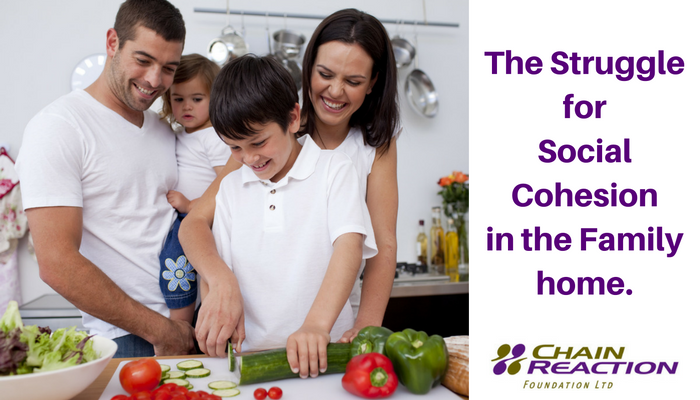Generation Gaps: The Struggle for Social Cohesion in the Family Home

Our society supports first-time mothers and fathers as they prepare to welcome their children into the world, and rightly so. Ante-natal classes and other forms of care provide these young parents with the education and the skills they need to approach the event without fear or trepidation, increasing the likelihood of a healthy birth for both mother and baby. But what about beyond this? What happens then?
Following the birth, this support and care is withdrawn, often leaving new parents feeling alone. The family dynamic has shifted in Australia, and we cannot assume that these families have access to traditional support networks.
Now, we see a clear and present need for parenting education for modern parents, enabling them to regain the leadership role within their homes as their children develop. Family-therapist Melissa Hood discusses this in her book Real Parenting for Real Kids, explaining how parents need support to develop positive behaviours without resorting to anger.
New Moves Towards Social Cohesion
As traditional family structures change, we must adapt to meet the challenges that such change brings. In this sense, we must innovate our way towards social cohesion. But how can this be achieved?
One method is to reinforce the concept of time as a valuable commodity. Nowadays it is common for both parents to work, after changes in the Australian workplace made it more viable to do so. Thus, children are commonly looked after by grandparents. In fact, Australia's grandparents are the nation's biggest providers of informal daycare for children up to the age of 12.
If, as parents, we can view time as the vital resource that it is and genuinely make the best use of the time we have with our children, then we are one step closer to achieving that social cohesion in the family home. Deliberately setting aside quality time each evening after work for parent-child bonding, more than just enjoying meals together and getting ready for bed, is a powerful step toward creating strong familial bonds at home.
Another method is to introduce ongoing support for parents beyond the early stages of the child’s development. Giving parenting support and coaching to busy modern couples allows them to pass on vital advice and concepts to their children – concepts like courtesy and table manners, which often fall by the wayside in modern child development.
Different Means for the Same Ends
Fulfilling the rhetoric and actually delivering effectively managed change is difficult, but it certainly is not impossible. One of the driving forces behind this shift in the dynamic of the family unit is technology; computers, video games, mobile devices and social media channels have become surrogate parents in some respects, something which has been blamed for decreasing levels of social engagement and increasing delinquency.
If we are to truly attempt to re-introduce social cohesion in the family home, we must harness these channels and use them for the good of the cause. Fostering connections and educating children and families via social media channels is a positive way to achieve this; remember that these are powerful tools and should be used for societal good.
Families are changing along with society, but we should not lose sight of the ends we are trying to achieve. These have not changed, it is just the means that we use to reach those families that have shifted.
Margaret Bell, AM - Founder and CEO of Chain Reaction Foundation.
| Donate to our Foundation | Contact Us | Purchase the Book |
